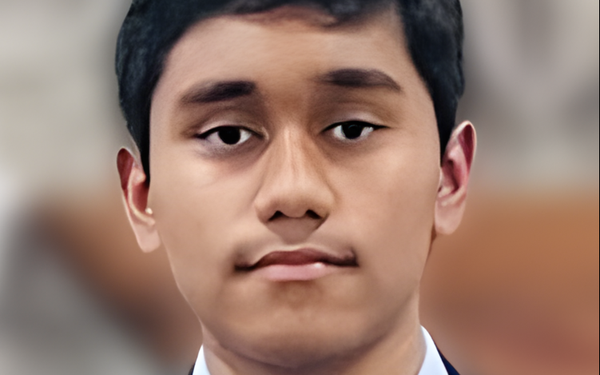
Khartik Uppalapati is a teenage wunderkind who has already
accomplished more in his 16 years than most of us will in our entire lifetimes. Uppalapati, who will soon enter his senior year at a Virginia high school, is the founder of a four-year-old rare
disease advocacy nonprofit, RareGen Youth Network, and a year-old for-profit product developer, RareTech. Last month, he was awarded the Princeton Prize in Race Relations for his work as a BIPOC
(Black, indigenous and person of color) individual “working to dismantle the racial inequities that BIPOC rare disease patients face in healthcare.”
Uppalapati began his work
because he also has two rare diseases, both of which can be life-threatening if not controlled: lymphedema and arteriovenous malformations (AVMs) of the hip. When he was diagnosed in 2021, as a
12-year-old in seventh grade, “It was a really confusing time handling both those rare diseases because of the COVID quarantine,” he tells Pharma & Health Insider. “I
wanted to network with other people with rare diseases who were also my age because, regardless of the specific rare diseases you have, the experience is very similar.”
advertisement
advertisement
A year later, he
attended an advocacy conference for another rare disease -- PFIC progressive familial intrahepatic cholestasis -- and “saw that a lot of the people taking part in discussions were adults.
[But] most people with rare diseases are under the age of 27, and most of these adults did not have rare diseases, nor were they talking from experience. I felt I needed to change the
system.”
So RareGen Youth Network was born.
And a year ago, beginning RareTech, “I transitioned from advocacy support into research because they go hand-in-hand for these
diseases,” he says. “I found there are a lot of key issues that could be solved with technology, AI, and integration on the biological side of rare diseases.”
Among the
products RareTech has developed are TinyViT-Batten, a generative AI model that helps in the prognosis of Batten disease(an eye disease). “There was no way to track the
prognosis Batten diseasebefore with an automated tool,” says Uppalapati. “This is a preliminary evolutionary tool, and a lot of doctors are very interested in collaborating
with us.”
As far as commercialization of products goes, “We're looking for a lot of partners in medtech especially, because a lot of our tools are focused on actions that
doctors can take, such as pre-emptive care, prognosis tracking,” says Uppalapati. “We plan on working with medical institutions however we can, to get our medtech products out to
them. That could be through targeted marketing, targeted advertisements, establishing partnerships with hospitals, whatever it takes.”
And Uppalapati’s work has already improved
his own medical situation. “With my AI tools, all my doctors were able to better understand why lymphedema disease formed and help my treatment,” he notes. "With all the support from
RareTech and the RareGen network, it's been way easier to manage and work with the effects of rare diseases.”
It’s a happy gain at a time when the shifting political climate is
increasing inequities in the healthcare system for rare diseases--– even more rapidly than, say, research or funding for other diseases, according to Uppalapati.
“The issue is,
there's a lack of visibility for rare disease advocacy,” he says. “So if there's more people cutting down on health care equity, there's also going to be more people who don't know about
rare diseases and rare disease advocacy --which is really bad because the whole rare disease movement is focused on visibility.”
He’s aware that makes his job even more important,
lending urgency to his extremely busy schedule (this summer, he’s doing a nine-week Princeton internship).
But “When you're passionate about something, it's pretty easy. It's not a
tedious task to check off on your daily schedule. You can embrace yourself in policy and technology for hours, just sit there and work, because you're making a difference.”